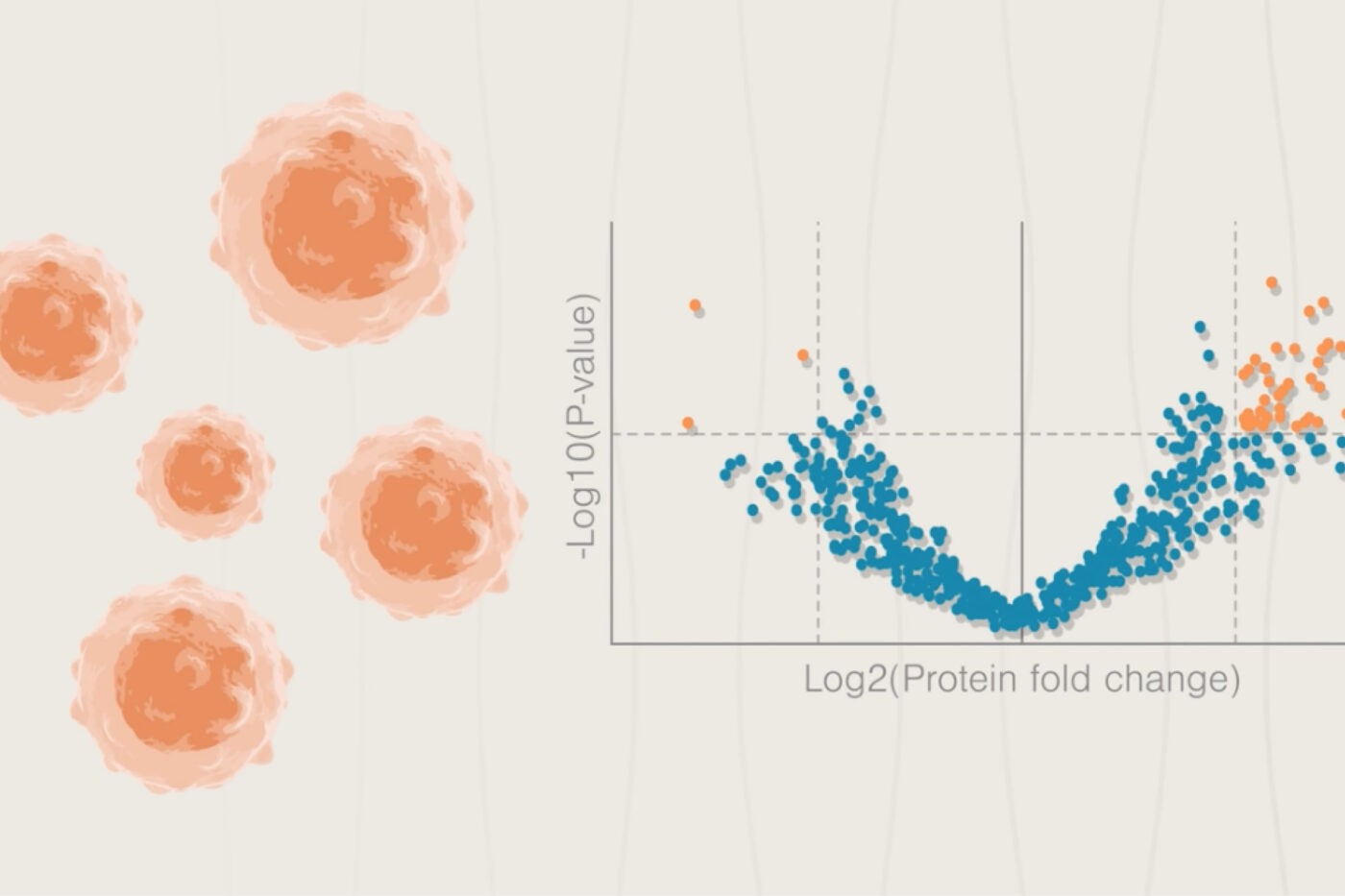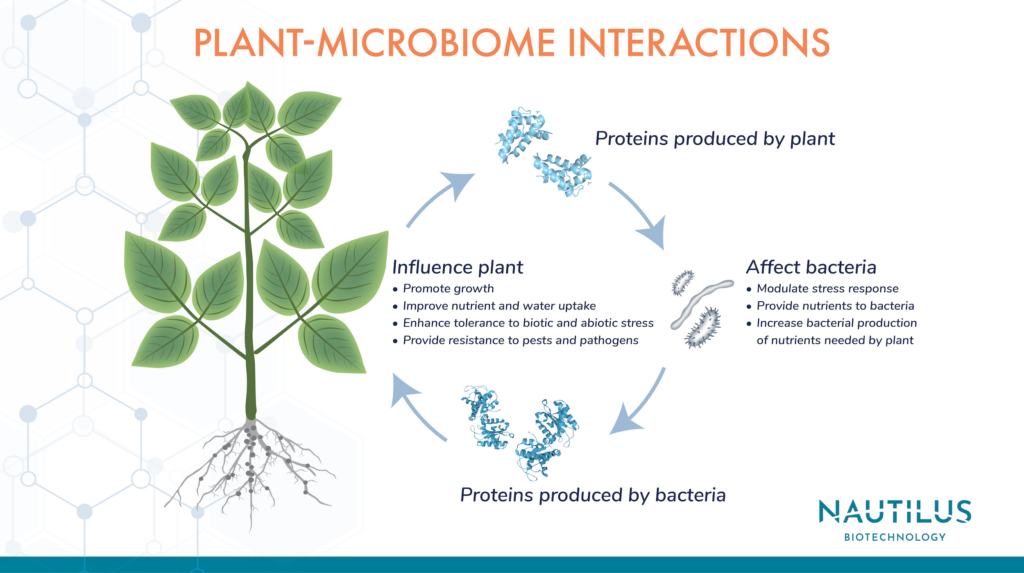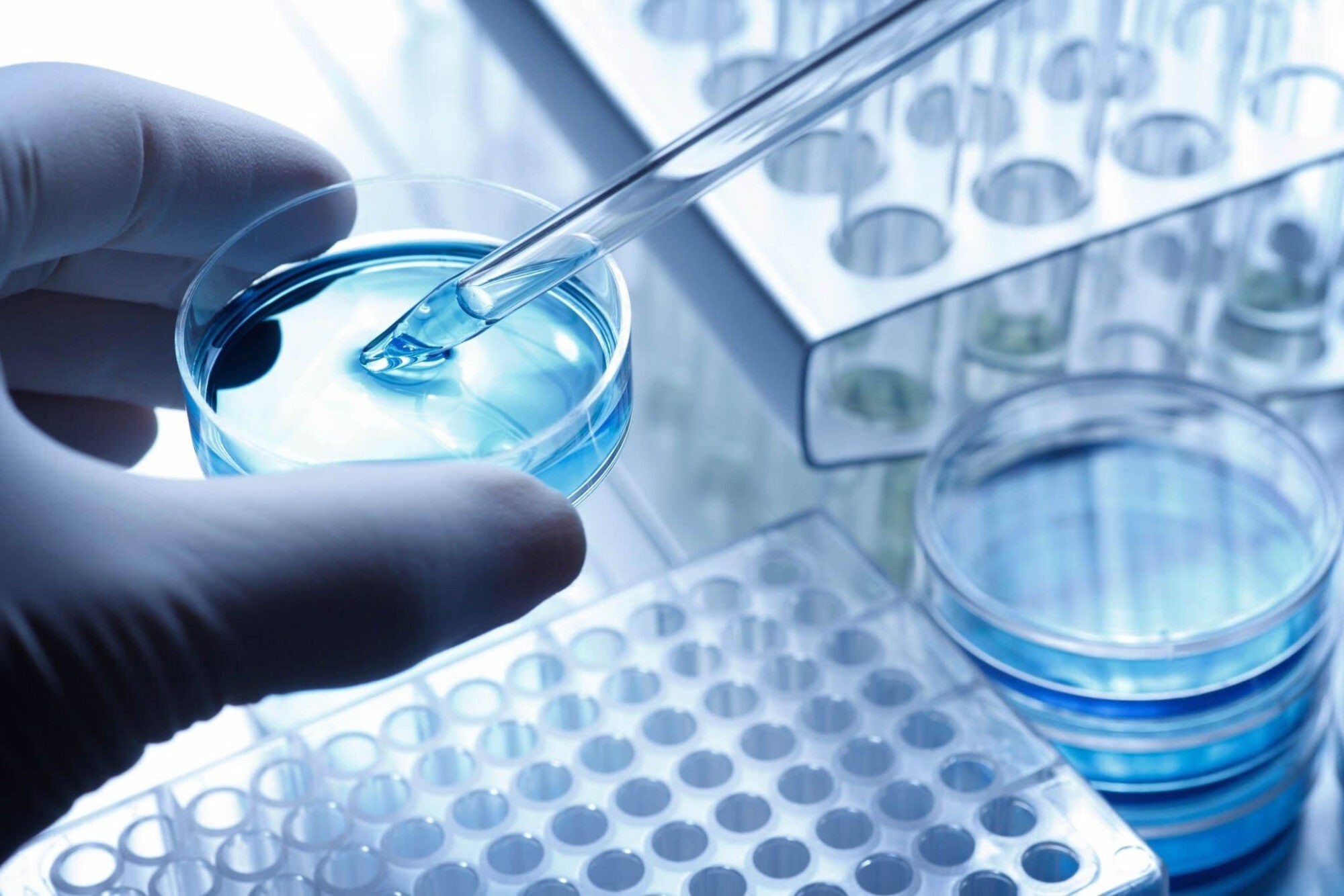
Applications of proteomics in agriculture – Plant-microbiome interactions

Tyler Ford
June 22, 2023

The everyday biological activities that sustain life are predominantly carried out by proteins. That’s as true in plants as it is in animals. Given that proteomics is the study of the entire set of proteins, or proteome, present in a cell, tissue, or organism, it’s no surprise there are many proteomics applications in agriculture.
At a very broad level, proteomics can provide insights into the molecular mechanisms that govern the growth, development, and overall physiology of any organism. In plants, proteomics has been used to study protein expression patterns in different organs, tissues, and developmental stages, and to identify the molecular mechanisms underlying plant responses to environmental stimuli like light, temperature, and water availability.
In recent years, the applications of proteomics have increasingly extended to improving crop protection and productivity, developing disease resistant crop varieties, and enhancing tolerance to environmental stresses like drought and heat. With new proteomics tools, these applications may be set to expand even more.
Next-generation proteomics tools like the Nautilus Proteome Analysis Platform are designed to enable faster, more sensitive studies of the proteome, uncovering low-abundance proteins that were previously missed, making it possible to identify relevant biomarkers for disease, and more. Proteomics is revolutionizing human health with applications that include biomarker discovery, improving cancer care, and taking on healthcare disparities. The world of agriculture, where proteins are equally important, will be no different.
This is the first in our three-part series on the Applications of Proteomics in Agriculture. We will discuss how proteins help plants partner with symbiotic microbes to store nutrients, maintain health, and more.
Applications of proteomics in studying plant-microbiome interactions
The collection of microorganisms that live on and in plants, the plant microbiome, is known to play a variety of roles in plant physiology. From nutrient acquisition, to pathogen defense, to directing growth, the microbiome has many roles to play. However, scientists do not have a great understanding of plant-microbiome interactions at the molecular level. Proteomics studies can provide researchers with a much deeper understanding of these processes.
For example, one proteomics application in plant science and agriculture is unraveling the interactions between plant roots and nitrogen-fixing bacteria, which provide a natural source of fertilizer for many plants. Using proteomics, researchers have identified and characterized novel proteins and revealed post-translational modifications that play a critical role in mediating symbiotic plant-microbe interactions. Plant proteins modulate stress responses, increase production of nutrients used by the microorganisms, and up-regulate nitrogen fixation by the microbes. By understanding these proteins, researchers may be able to enhance and expand the use of nitrogen-fixing microbes to improve the efficiency of crop production across the world.
Other effects of plant-microbiome interactions
Bacteria do much more than provide nitrogen to plants — they can improve plant health by activating proteins associated with environmental stress tolerance, metabolism, pathogen resistance, and the production of specialized plant compounds.
These beneficial microbes ultimately help plants in a variety of ways including:
- Pathogen defense – Rhizobium etli is a symbiotic bacteria that increases disease resistance in common beans like kidney, pinto, and navy beans. Communication between etli and the host plant seems to prime the plant defense response, leading to faster and stronger reinforcement of plant cell walls, and strengthening defenses against the bacterial pathogen Pseudomonas syringae pv. Phaseolicola.
- Plant growth – Sinorhizobium meliloti helps increase growth in rice plants by producing phytohormones including auxin, cytokinin, gibberellin, and brassinosteroid.
- Environmental stress protection – The bacteria Sinorhizobium meliloti improves drought tolerance in the legume Medicago truncatula by delaying leaf senescence, changing the distribution of carbon in plant leaves, and enhancing production of compounds that help retain water.
While scientists have begun exploring which proteins are involved in these interactions, there are undoubtedly many more to discover. Overall, there are broad physiological changes associated with plant-microbiome interactions. These involve impacts on plant cell physiology, hormone signaling, metabolism, and stress responses. Only techniques like those of next generation proteomics can match the scale of these physiological effects and truly enable us to understand beneficial plant-microbiome interactions.
As the proteomics revolution progresses with new and better tools, more of these proteins will come to light, paving the way for techniques that encourage new and improved plant-microbe interactions.
In part two of our Applications of Proteomics in Agriculture series, we’ll discuss how proteomics is advancing research into plant stress tolerance.
Listen to the Translating Proteomics podcast for a fascinating discussion of the applications of proteomics
MORE ARTICLES
